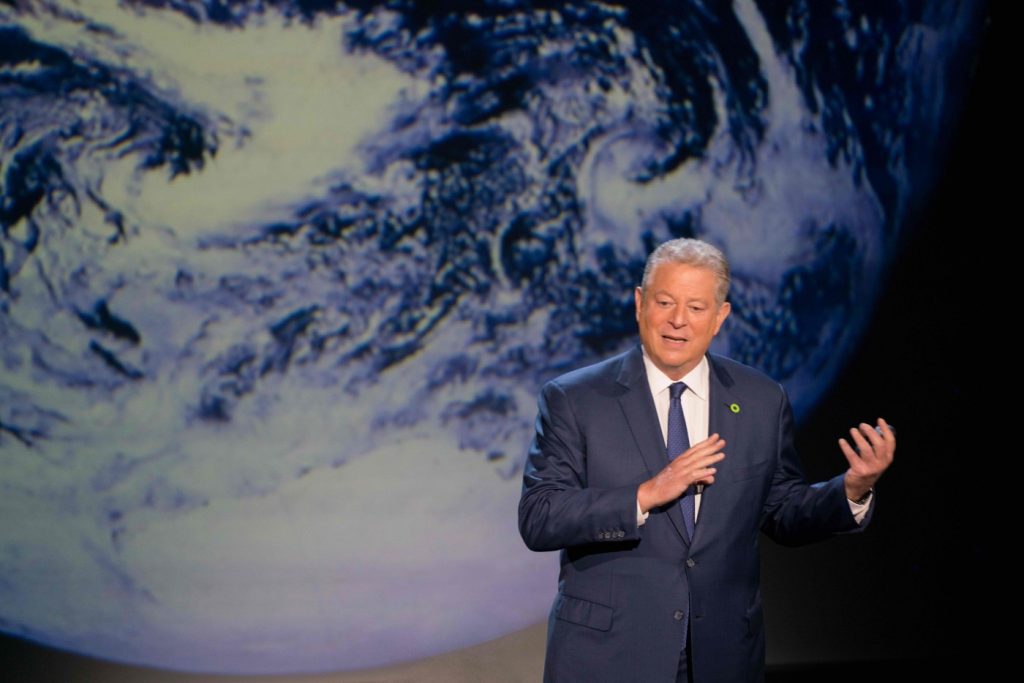
Eleven years after An Inconvenient Truth brought climate change into the focus of the public eye, the devastating effects predicted by Al Gore are becoming more than an inconvenient reality. Extreme weather patterns increasingly dominate the news headlines; Hurricane Irma has left a trail of destruction across the Caribbean this week and looks set to hit Florida or neighbouring states by the weekend. Whilst these natural disasters may not be directly caused by climate change, it is becoming more and more difficult to deny that the intensification of global warming is playing a factor.
Yet we live in a world where people in power continue to smother and deny the urgency of the climate crisis at hand. Donald Trump has assembled a cabinet with an unprecedented amount of influence from the fossil fuel industry. This has a created a political system which is largely affected by heavily vested interests. This means that the decision-making processes regarding the long-term conservation policies required for a sustainable future are being impacted by the companies benefiting most from an unsustainable depletion of natural resources.
The inauguration of Donald Trump acts as a dramatic halt within Al Gore’s Inconvenient Sequel, which otherwise portrays a largely positive trend to the fight against climate change. The documentary follows Gore’s relentless efforts over the space of two years in persuading governmental leaders to invest in forms of renewable energy and implement sustainable policies that address the issue of global warming.
Bonni Cohen and Jon Shenk, the documentary’s directors, use its Hollywood style production to build suspense in the diplomatic struggle between developed and developing countries in the 2015 Paris Climate Conference. This suspense eventually climaxes with India reluctantly buying into the zero-net emissions agreement that was reached at the conference. The energy sources being used to advance India and its population of 1.3 billion people into a fully industrialised and developed nation is depicted by Gore as being a key battle in the fight against climate change.
One of my criticisms of the documentary is that the reaching of the Paris Climate agreement is rather simplistically portrayed as being the result of Gore making a series of well-placed phone calls behind the scenes to his well-connected friends. Al Gore knows everybody. He can whip out his phone and dial the treasury secretary or the head of a giant solar panel manufacturer and say things such as “I’ll check with President Hollande” or “Elon (Musk) suggested I call.” I can see why this serves a cinematic purpose, but it often crosses the line into becoming a little too self-engaged.
An Inconvenient Truth (2006) was an effective consciousness-raising exercise, focusing on Al Gore’s ‘slide shows’, as he calls them, on the reality of climate change. Eleven years on, the sequel brings home the intensification of the crisis. The former Vice-President is still giving, and constantly updating, his ‘slide-show’, and it is now filled with footage from climate-related disasters. This makes the connection between global warming and extreme weather patterns slightly more tangible than the animations and projections that comprised the 2006 documentary.
Gore focuses on the effect of rising pollution levels, which are causing deadly storms in Malaysia, drought in Syria, and huge floods in Miami among others. Today, both the causes and the effects of climate change are clearer, and while some people have been harder hit than others, few of us are totally untouched; the news, as Gore puts it in a practiced bit of dark humour, has become “like a nature hike through the Book of Revelation.”
However, any correlation that is drawn between the increasing gravity of natural disasters and rising pollution levels is constantly refuted by an overly orange presidential figure whose presence seems to loom over the documentary. Trump’s politics manage to undermine any breakthrough in renewable energy that Gore attempts to portray. In May, Trump announced he was pulling the United States out of the landmark Paris Climate Conference global agreement, saying it would harm the US economy and cost jobs.
If we have learnt anything about Trump in the last year it is that he is unpredictable and not to be underestimated. His single-minded approach to economic growth in the form of immediate gains and instantaneous gratification does not take any prisoners. Trump is creating a White House hit list of people who have the nerve to oppose him and by doing so exhibiting all the signs of incredibly low self-esteem. This is increasingly isolating his presidency into a group of socio-economic elites with vested interests and a reluctance to prioritise the well-being of society over individualistic prosperity.
This begs the question of what hypothetical situation would be required for the President to adopt some long-term conservation policies and acknowledge the gravity of the climate crisis at hand? A slew of Trump’s Florida properties stand in the path of Hurricane Irma, hopefully an individual loss for the President will awaken him to the reality that the current influx in extreme weather patterns is being exaggerated by the effects of global warming. And that the current unsustainable depletion of natural resources is affecting a trend that it is only going to get worse and more catastrophic.
Filed under: Film, TV & Tech

Comments